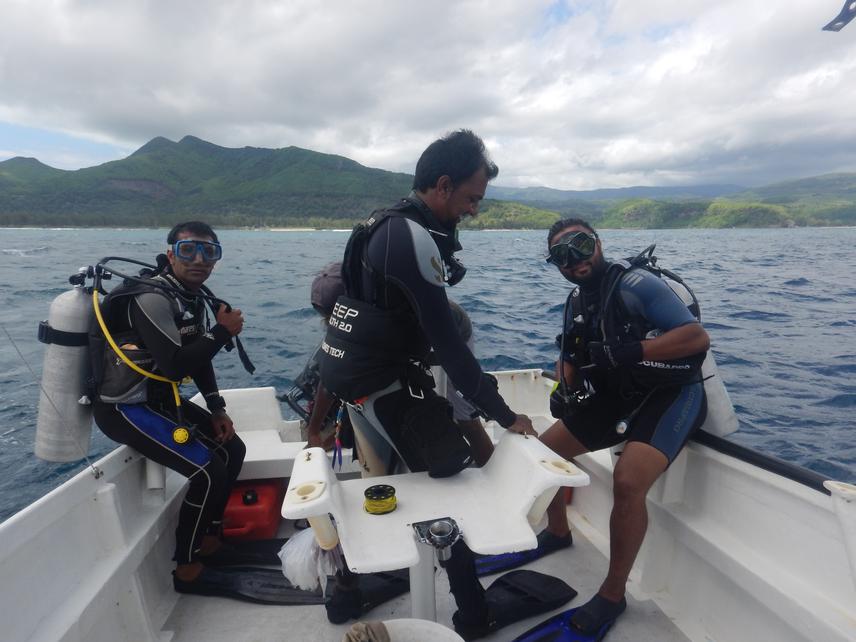Charles Olivier Arvin Pasnin
Other projects
18 Apr 2017
Harnessing Biodiversity of Marine Sponges on Rodrigues Island (Western Indian Ocean) for Improving Marine Conservation
Marine sponges are found in all waters globally being important members of benthic ecosystems, with sponges which have evolved and adapted to different environments from one extreme to another. Sponges play important roles in their respective ecosystems such as bioerosion, nutrient cycling, food source and primary production However, knowledge of historical and contemporary, biogeographic and biodiversity patterns of sponges remains poor, despite their importance as ecosystem engineers in reef systems. In this regard, this proposal aims to assess the biodiversity of sponges of Rodrigues, Mauritius and Reunion Islands (Mascarene Islands) for inclusion into the current marine management plans. Preliminary results from our recent surveys suggested different sponge faunas from all three islands with endemic and new species observed.

The Mascarene Islands comprise of three islands of volcanic origin known as Mauritius (1865 km2), Rodrigues (104 km2) and Reunion (2512 km2) found in the middle of the Indian Ocean. All three islands have MPAs which were identified through participatory processes by looking mainly at coral and fish diversity. Research on sponges for all three islands have been focused mainly on the biotechnological potential of those species with no biodiversity surveys done up to now. This is the same around the world where little effort is being put towards identifying ways of maintaining and sustaining the long-time survival of sponge communities in their respective ecosystems. Hopefully this is changing with new studies showing the importance of sponges particularly because of their filter feeding abilities. They play important ecological roles in marine benthic environments where, they have a significant impact on local water quality and nutrient cycling. It has also been observed that certain sponges have the ability to take up dissolved organic matter, therefore playing an important role particularly in coral reefs ecosystem. As sponges are found abundantly in different ecosystems, they also carry out important ecological roles in the ocean such as bioerosion, nutrient cycling, food source and primary production. As no surveys has been done up to now on understanding marine sponge diversity and endemicity, we therefore propose to survey all three islands forming the Mascarene archipelago looking at the sponge biodiversity.
This proposal on surveying sponge biodiversity forms part of a PhD project where biodiversity and genetic data of sponges in the region will be used for identifying areas of high biodiversity and conservation value. The main contribution of this project is that the sponge biodiversity data will provide baseline information for the protection of sponges in the region. Moreover, the MPAs will be assessed in terms of sponge biodiversity protection and recommendations will be given to the authorities for a proper management and effective use of the MPAs in all three islands with regards to sponge biodiversity. This project will provide the first information on biodiversity of sponges for the whole Mascarene region.